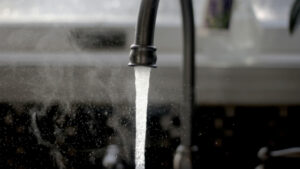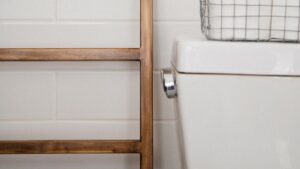Plumbing Resolutions for the New Year
Research has it that approximately 45 percent of all people make resolutions at the start of each year. However, only a paltry 8 percent of those people actually implement those resolutions. Our team Tureks Plumbing Services would like you to consider the following plumbing resolutions for the New Year so you can save on your plumbing bill in 2019!
Be More Considerate of Your Garbage Disposal
The garbage disposal is one of the unsung heroes of your plumbing system. However, many homeowners ignore this appliance until something malfunctions. Let next year be a different year for the garbage disposal in your home. Resolve to treat it better by being more mindful about what you deposit inside the disposal. For example, don’t place large chunks of debris inside the disposal just because it has blades that can cut that debris into tiny pieces. Instead, cut the debris into smaller pieces so that the garbage disposal doesn’t overwork.
Such consideration will reduce the wear and tear on your disposal. Defects will also be fewer, so you will have a reduced need to call Tureks Plumbing Services to fix a disposal malfunction.
Fix Defects Promptly
The second of the plumbing resolutions for the New Year entails taking prompt action as soon as a defect is detected in the plumbing system. You see, plumbing defects differ in intensity/seriousness. For example, a minor leak may develop at the kitchen faucet, or the main water pipe into your home may burst and start gushing water into your yard. These two leaks elicit different degrees of urgency among homeowners.
However, that minor leak that you delay to fix can result in additional problems. For example, the slow leak can inflate your monthly water bill. Secondly, the moist conditions created by the leak can promote the growth of mold and mildew (with their attendant health risks).
It is therefore wise for you to contact a plumber in Appleton, WI, each time you detect any defect in the plumbing system. The New Year will then have fewer plumbing emergencies if you act quickly each time a defect is noticed.
Conserve Water
You should also resolve to conserve water more in the New Year. This can be attained in several ways, such as upgrading to water-efficient toilets and showerheads. In fact, even fixing defects promptly can help you to conserve water since the wastage resulting from plumbing defects will be avoided.
Consult a Fox Valley plumber in case you want to implement more comprehensive changes in your home in order to make the plumbing system more efficient. The professional will inspect your home and suggest the most cost-effective ways to conserve water in your home.
Give Your Water Heater More Attention
The water heater in your home is an important appliance from a comfort point of view and from the aspect of energy-efficiency. For example, a sudden malfunction can deny your family members hot water to take a shower in the middle of winter. Such an inconvenience can be hard to bypass during such weather.
It is therefore vital that you resolve to give your water heater more attention this coming year (and beyond) so that it can continue to give you the reliable service that you have come to expect. Check the anode frequently and replace it when it is eroded. Flush the tank regularly so that sediment doesn’t accumulate and spring a leak. You can also ask a Fox Valley plumber to check that water heater so that the defects you weren’t aware of as a layperson are fixed before they worsen and compromise the functioning of the appliance.
Keep Pipes Warm
Your plumbing resolutions for the New Year may not be complete if you haven’t thought about how to winterize the plumbing system. Make a conscious decision to keep the water pipes warm during the cold months of the year so that you can forestall those pipes from bursting after freezing.
It is especially important to keep the pipes outdoors and those where no air conditioning exists (attic and basement, for example) warm by wrapping them in insulation. This insulation is affordable and can be bought in rolls at plumbing or hardware stores. Ask one of our experts at Tureks Plumbing Services for recommendations in case you aren’t sure of which particular product to buy and use.
Have Regular Inspections Done
Resolve to start being more proactive rather than reactive when it comes to addressing plumbing system issues. Don’t wait for a problem to occur before you pay some attention to the plumbing system. Instead, ask an experienced plumber in Appleton, WI, to inspect the entire system at least once each year so that defects can be caught early. Such proactive measures will reduce your expenditure on plumbing repairs, and the system will break down less frequently.
Tureks Plumbing Services is available round the clock throughout the year. Don’t hesitate to contact us if you need help in implementing any of the plumbing resolutions for the New Year covered in the discussion above. We shall do everything possible to keep your plumbing system working without a hitch.





